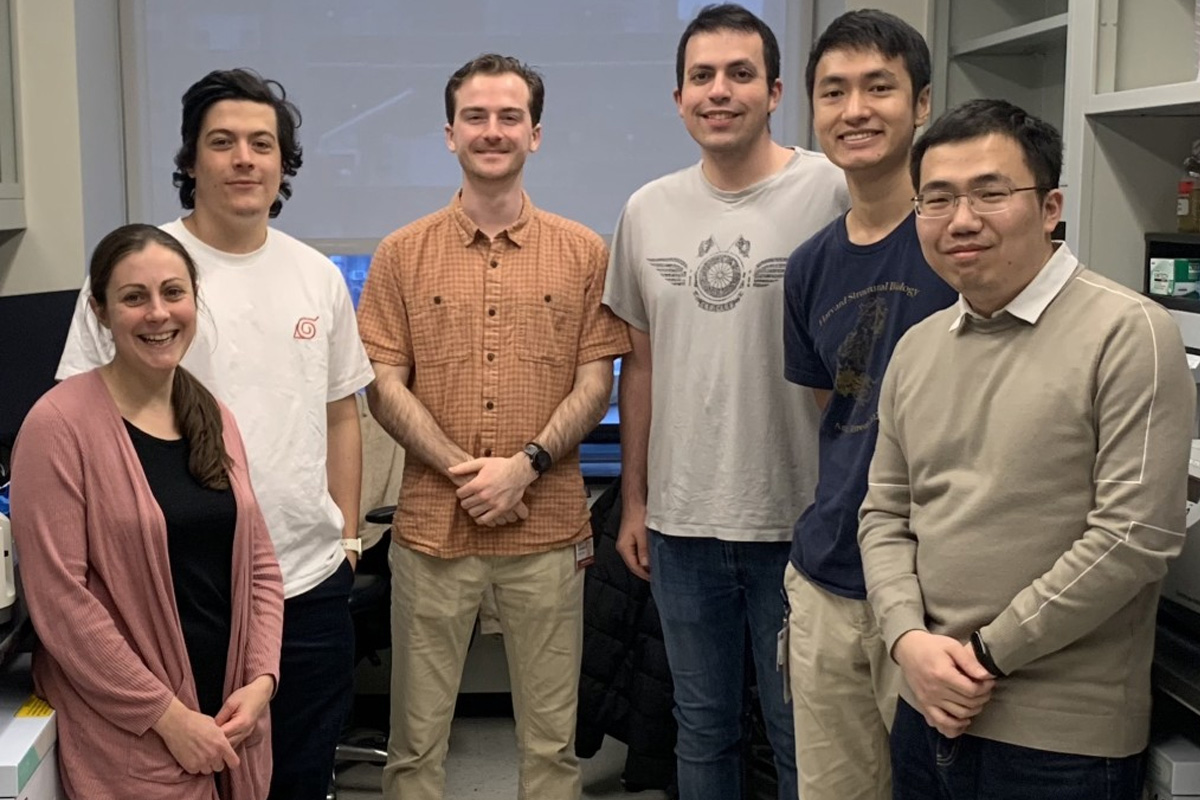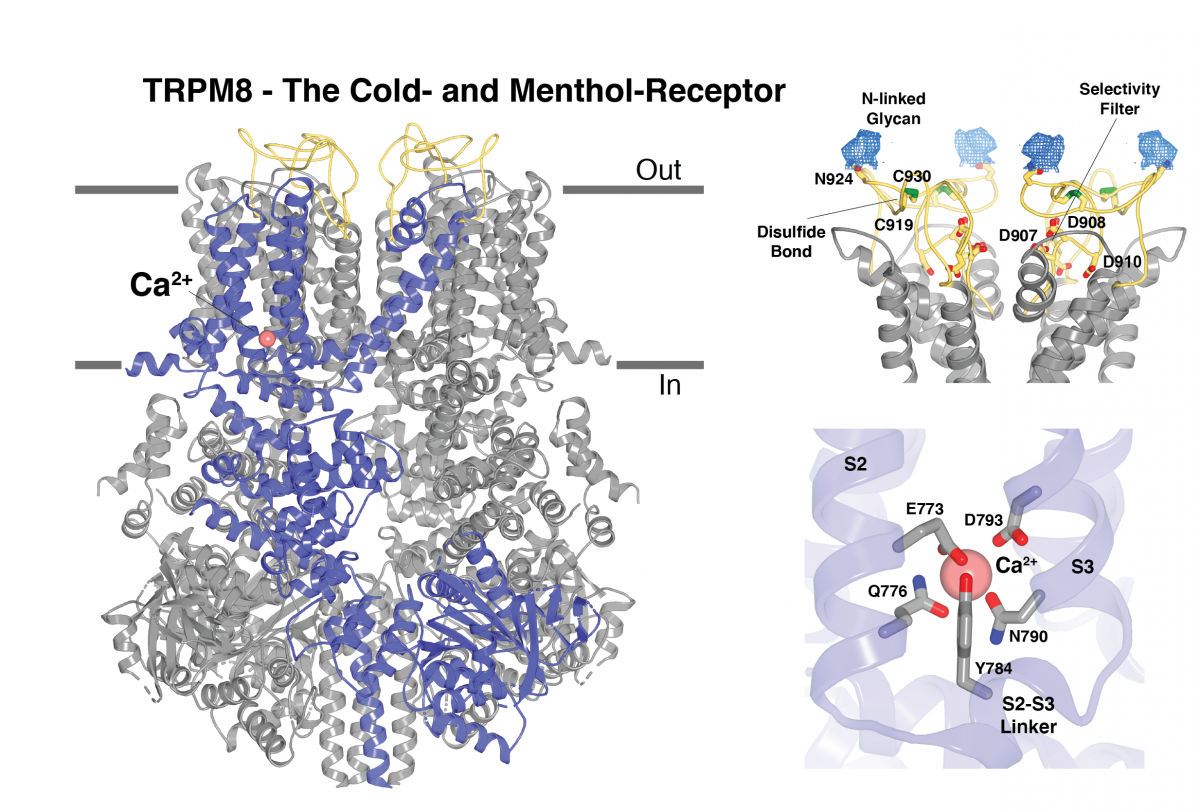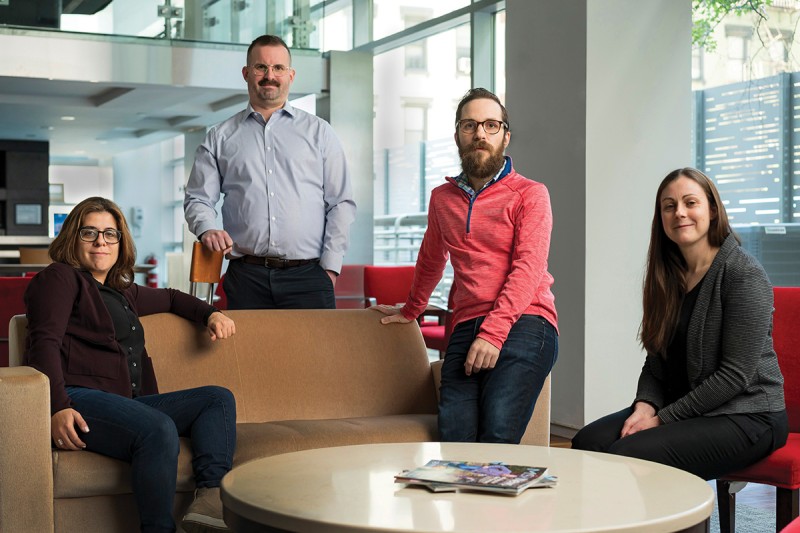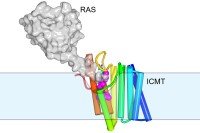The Melinda Diver Lab
Research

Most drugs target membrane proteins, accessible on the surface of cells, to alter the transport of ions and molecules and the transduction of cellular signals. The Diver lab explores the biological functions and molecular mechanisms of understudied transmembrane protein families with the goal of revealing critical knowledge about their roles in human physiology and disease. How do these poorly understood ion channel and transporter families permit ion flux? What protein movements are involved? Does their dysregulation play a role in disease? These understudied proteins represent valuable potential drug targets for diseases, such as chronic pain and cancer, for which there is an urgent need to develop more effective therapeutic strategies.
The Diver lab’s approach is comprehensive, spanning tissues to cells to high-resolution structures, and exploits a range of biochemical, structural, biophysical, and physiological approaches to address questions concerning mechanisms and consequences of lipid-protein and protein-protein interactions and their effects on membrane protein function. As merely solving a structure provides only a superficial understanding of a protein’s function, we emphasize complementary techniques that provide a more complete understanding of a protein’s function and how it relates to human biology and therapeutics. For example, we identify modulatory drugs to yield unique and powerful pharmacological tools that have utility for our basic research and drug discovery efforts. Importantly, we aim to probe membrane protein structure and function in more native environments, thereby bridging gaps in knowledge between in vitro studies and in vivo models.
More information about our research can be found at https://diverlab.org.
Research Projects



Featured News


Publications Highlights
People

Melinda M. Diver, PhD
Assistant Member
- The Diver lab studies the physiological roles and molecular mechanisms of understudied membrane-embedded proteins with the goal of revealing novel therapeutic targets for diseases such as pain and cancer.
- BSc, Biochemistry, University of British Columbia (2007)
- PhD, Biochemistry and Structural Biology, Weill Cornell Graduate School of Medical Sciences (2015)
- Postdoc, University of California, San Francisco (2021)
- [email protected]
- Email Address
- 212-639-3808
- Office Phone
Members

- BA, Writing and Rhetoric, Asian Languages and Cultures, Hobart and William Smith Colleges (2011)
- (212) 639-2014
- Office Phone

- BS, Biochemistry and Phycology, Mount Holyoke College (2021)
- (212) 639-5106
- Office Phone

- BS, Biochemistry and Poetry, University of Chicago (2021)
- (212) 639-5106
- Lab Phone

- BS, Biochemistry, Washington University (2020)
- (212) 639-5106
- Lab Phone

- BAc, Economics, Peking University (2013)
- BSc, Biological Sciences, Peking University (2013)
- PhD, Structural Biology/Biochemistry, Peking University (2018)
- (212) 639-5106
- Lab Phone






- BA, Biological Sciences (Microbiology) & Theater and Performance Studies, University of Chicago (2021)
- MD, Indiana University Indianapolis (Starting 2023)
- (212) 639-5106
- Lab Phone

- BA, Biochemistry, Vassar College (2024)
- PhD, Pharmacology, University of Pennsylvania (Starting 2024)
- (212) 629-5106
- Lab Phone

- BA, Chemistry, Bard College (2022)
- MD-PhD, University of Conneticut (Starting 2025)
- (212) 639-5106
- Lab Phone

- BA, Biology & Chemistry, University of Chicago (Expected 2027)
- (212) 639-5106
- Lab Phone

- University of Houston (2026)
- (212) 639-5106
- Office Phone





Achievements
- Josie Robertson Investigator (2021-2026)
- NCCIH Pathway to Independence Award (K99/R00) (2019-2024)
- A. P. Giannini Postdoctoral Fellowship and Career Award (2017-2019)
- American Heart Association Pre-doctoral Fellowship (2012-2013)
- Dorris J. Hutchinson Fellowship (2010-2011)
Open Positions
To learn more about available postdoctoral opportunities, please visit our Career Center
To learn more about compensation and benefits for postdoctoral researchers at MSK, please visit Resources for Postdocs
Graduate Students & Postdoctoral Fellows
Get in Touch
-
Lab Head Email
-
Office Phone
-
Lab Phone
Disclosures
Members of the MSK Community often work with pharmaceutical, device, biotechnology, and life sciences companies, and other organizations outside of MSK, to find safe and effective cancer treatments, to improve patient care, and to educate the health care community. These activities outside of MSK further our mission, provide productive collaborations, and promote the practical application of scientific discoveries.
MSK requires doctors, faculty members, and leaders to report (“disclose”) the relationships and financial interests they have with external entities. As a commitment to transparency with our community, we make that information available to the public. Not all disclosed interests and relationships present conflicts of interest. MSK reviews all disclosed interests and relationships to assess whether a conflict of interest exists and whether formal COI management is needed.
Melinda M. Diver discloses the following relationships and financial interests:
No disclosures meeting criteria for time period
The information published here is a complement to other publicly reported data and is for a specific annual disclosure period. There may be differences between information on this and other public sites as a result of different reporting periods and/or the various ways relationships and financial interests are categorized by organizations that publish such data.
This page and data include information for a specific MSK annual disclosure period (January 1, 2024 through disclosure submission in spring 2025). This data reflects interests that may or may not still exist. This data is updated annually.
Learn more about MSK’s COI policies here. For questions regarding MSK’s COI-related policies and procedures, email MSK’s Compliance Office at [email protected].
